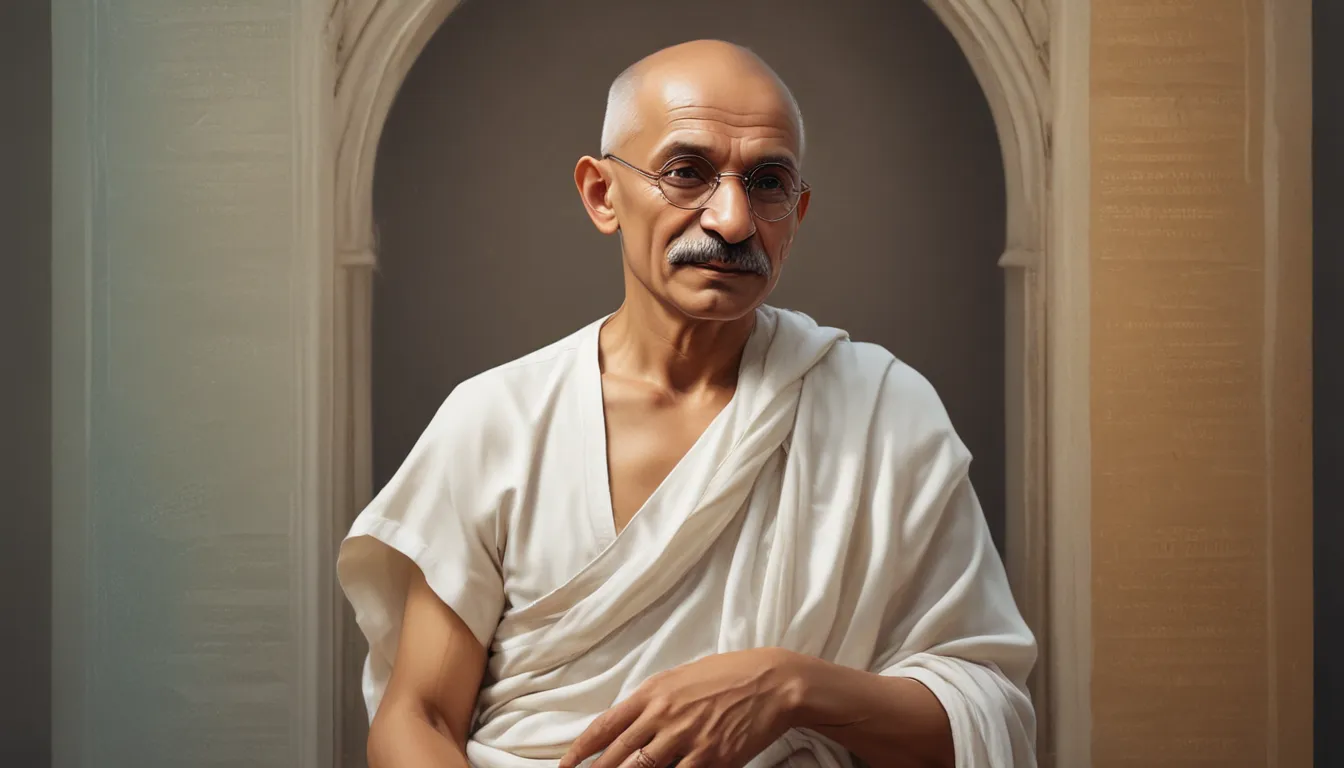The images in our articles may not match the content exactly. They are used to grab your attention, not to show the exact details in the text. The images complement the text but do not replace it.
Gandhi, also known as Mahatma Gandhi, was a prominent leader in India’s fight for independence against British rule. His philosophy of nonviolent resistance has inspired movements for civil rights and freedom worldwide. Born on October 2, 1869, in Porbandar, India, Gandhi’s life was characterized by his unwavering commitment to social justice, equality, and peace. Let’s delve into 26 intriguing facts about Gandhi that shed light on his extraordinary life and enduring influence.
The Early Years of Mahatma Gandhi
-
Birth and Family: Mohandas Karamchand Gandhi, born on October 2, 1869, in Porbandar, India, was the son of Karamchand Gandhi, the chief minister of Porbandar, and Putlibai, who played a significant role in his spiritual development.
-
Marriage: At the age of 13, Gandhi entered into an arranged marriage with Kasturba Makhanji, a common practice in India during that era.
-
Education: Gandhi pursued a degree in law in London, attending University College London and the Inner Temple, shaping his intellectual and professional pursuits.
Gandhi’s Transformative Journey to South Africa
-
Legal Career: In 1893, Gandhi traveled to South Africa to work as a legal representative for an Indian firm, where he encountered firsthand racial discrimination.
-
Civil Rights Activism: The incident of being ejected from a train for refusing to move from the first-class compartment fueled Gandhi’s determination to combat racial injustice.
-
Founding the Natal Indian Congress: In 1894, Gandhi established the Natal Indian Congress to advocate for the rights of the Indian community in South Africa.
-
Development of Satyagraha: During his 21 years in South Africa, Gandhi developed the concept of “Satyagraha,” or nonviolent resistance, a principle that would become central to his activism.
Gandhi’s Leadership in India’s Independence Movement
-
Return to India: Gandhi returned to India in 1915 and became a pivotal figure in the Indian National Congress, leading various successful nonviolent protests against oppressive British policies.
-
Champion of Non-Cooperation: In 1920, Gandhi initiated the Non-Cooperation Movement, urging Indians to boycott British goods and institutions.
-
Salt March: The iconic Salt March in 1930 was a significant act of civil disobedience against the British salt tax, garnering international attention for Gandhi’s cause.
-
Imprisonment: Throughout his activism, Gandhi was imprisoned multiple times, spending over six years behind bars for his unwavering commitment to India’s independence.
Gandhi’s Personal Beliefs and Practices
-
Vegetarianism: Influenced by his mother and the Jain community, Gandhi adopted a vegetarian lifestyle.
-
Ahimsa: Central to his philosophy was the principle of “Ahimsa,” or nonviolence, which guided his approach to activism.
-
Simple Living: Gandhi advocated for simple living, exemplified by spinning his own cloth and encouraging others to do the same.
-
Advocate for Women’s Rights: Gandhi was a staunch supporter of women’s rights, advocating for their equal participation in society.
-
Fasting as Protest: He utilized fasting as a form of protest and self-purification, undertaking 17 fasts during his lifetime to highlight social issues.
Legacy and Global Influence of Mahatma Gandhi
-
Inspirational Leaders: Gandhi’s philosophy of nonviolence inspired renowned leaders like Martin Luther King Jr. and Nelson Mandela.
-
International Recognition: The United Nations commemorates October 2 as the International Day of Non-Violence in honor of Gandhi’s birthday.
-
Literary Contributions: Gandhi’s autobiography, “The Story of My Experiments with Truth,” provides profound insights into his life and beliefs.
-
Nobel Peace Prize Nominations: Despite being nominated five times, Gandhi never won the Nobel Peace Prize.
-
Enduring Legacy: His image adorns all Indian currency notes, symbolizing his enduring impact on India and the world.
-
Global Inspiration: Gandhi’s life and teachings continue to inspire movements for social justice and peace across the globe.
Gandhi’s Legacy: Empowering Change Through Nonviolent Resistance
Mahatma Gandhi’s legacy transcends borders and time, resonating with individuals committed to social justice and equality. From leading transformative movements like the Salt March to advocating for marginalized communities, Gandhi’s actions exemplified the transformative power of peaceful resistance. His influence extended far beyond India, shaping the strategies of influential leaders like Martin Luther King Jr. and Nelson Mandela. Today, Gandhi’s teachings serve as a beacon of hope for those striving for a more just and compassionate world. Let us draw inspiration from Gandhi’s courage and unwavering commitment to truth and nonviolence as we navigate our own paths toward positive change.
Conclusion
Your trust in our commitment to delivering accurate and engaging content drives our mission to provide valuable information to our readers. Each fact shared here is a testament to the impactful legacy of Mahatma Gandhi and his enduring influence on global movements for social change. As you continue to explore and learn, rest assured that our team of dedicated editors upholds the highest standards of credibility and authenticity in presenting factual information. Join us on this journey of discovery and enlightenment as we uncover the remarkable life and legacy of Mahatma Gandhi and the principles he stood for.






